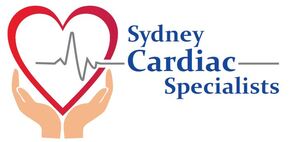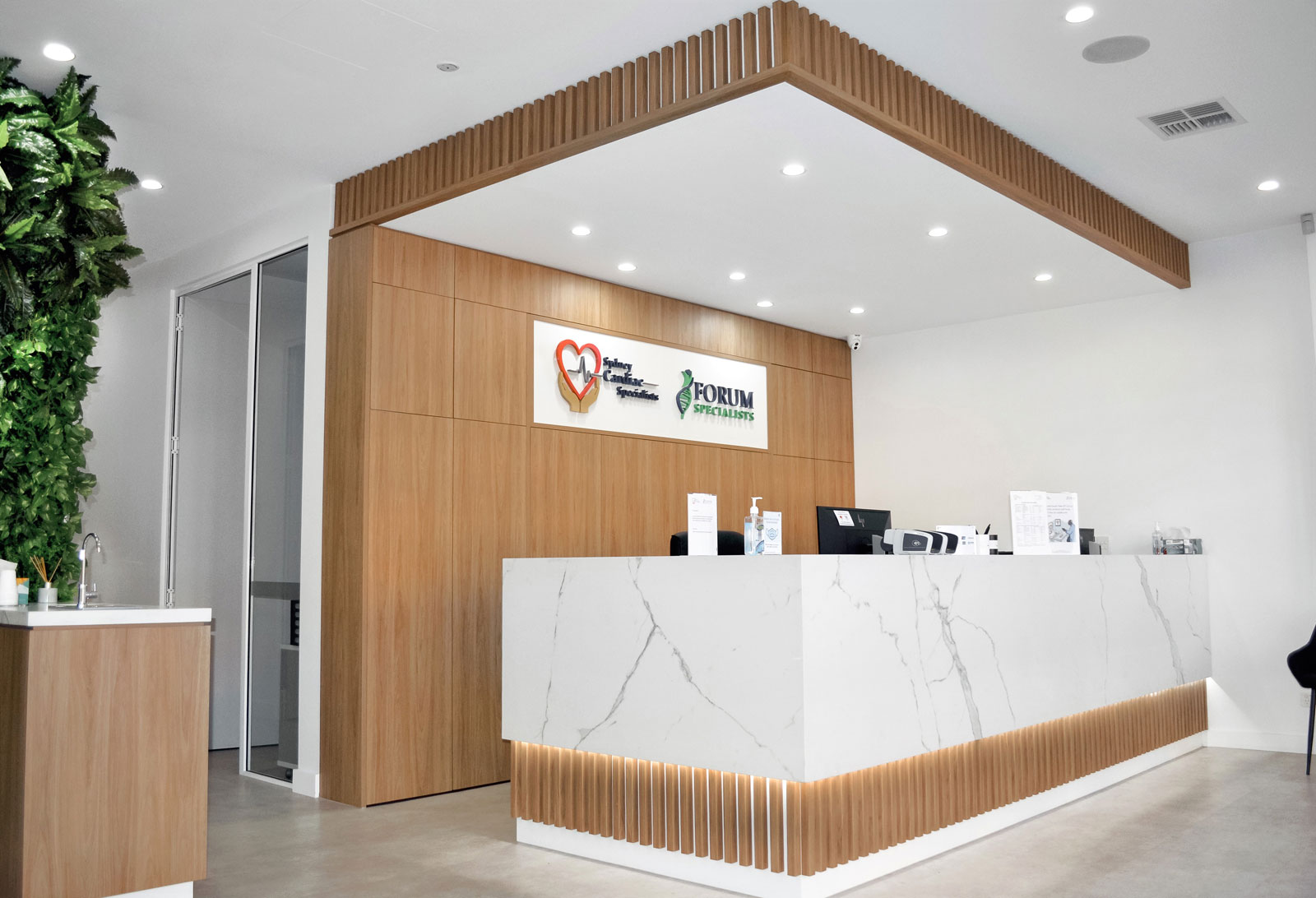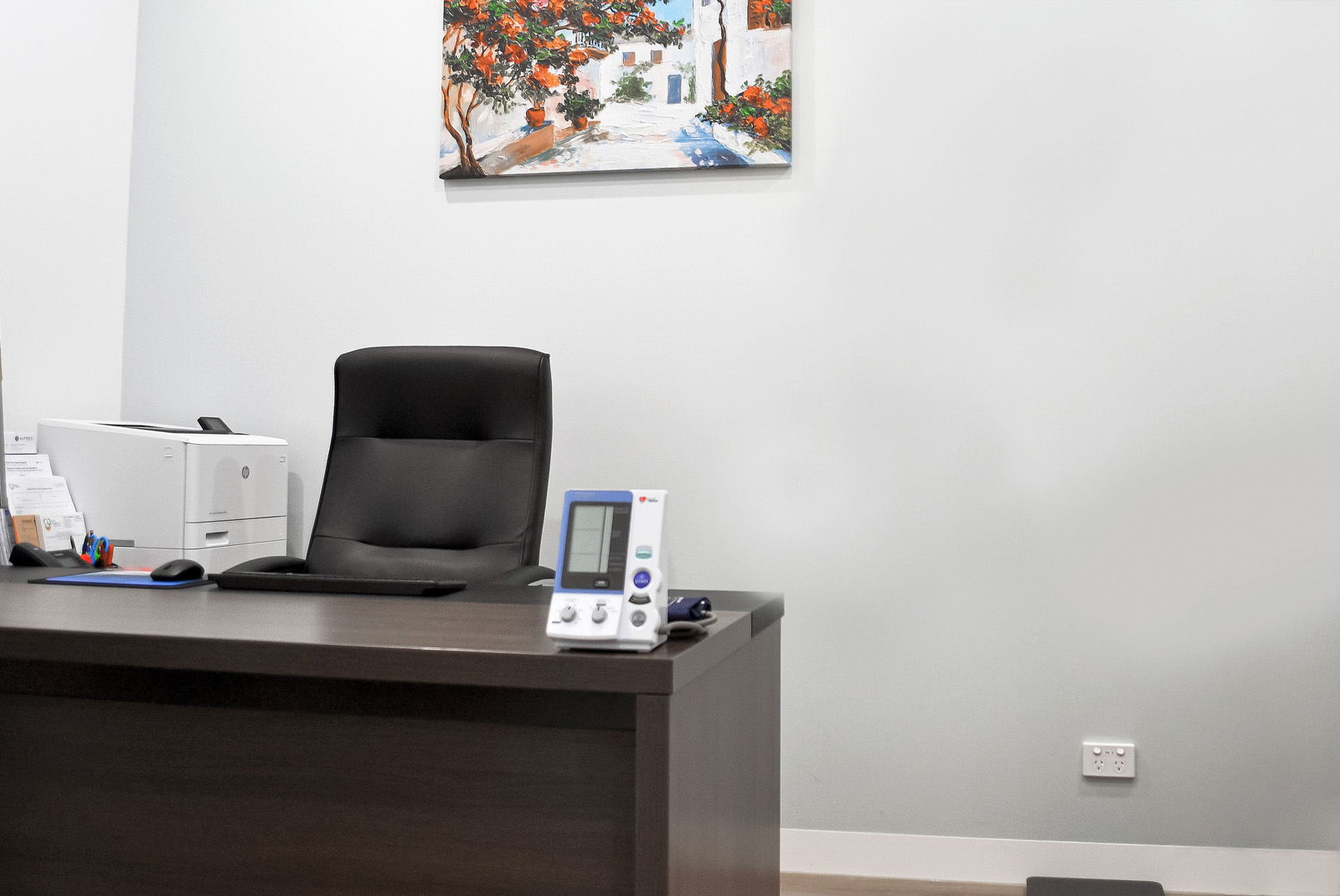Bringing world class Cardiovascular Care to the heart of SydneyOver the years, Sydney Cardiac Specialists has made its name as one of Sydney’s leading cardiac clinics. The clinic was established by a group of doctors working in some of Sydney’s most prestigious teaching hospitals, who shared a common vision- to provide their community with a holistic, patient focussed and convenient cardiac service that combined a modern state-of-the-art cardiology practice, with the best aspects of collaborative subspecialized cardiac care found in our teaching hospitals. True to its vision, Sydney Cardiac Specialists now brings together experienced subspecialist cardiologists, all of who are experts in their field. The cardiologists cover expertise across all major cardiac subspecialties including general cardiology, cardiac imaging, interventional cardiology, cardiac electrophysiology and paediatric cardiology. Similar to what happens in large teaching hospitals, the cardiologists are able to closely consult and collaborate with one another within the practice wherever necessary to ensure excellence in the patient-centred care they provide. From start to finish, they are committed to provide you with an attentive, personalized service and a holistic assessment and treatment plan. Combining the experience of the cardiologists, with Sydney Cardiac Specialists philosophy to always provide the highest standard of care along with the latest technology, means that you can be assured to receive a world class level of care throughout your treatment. The cardiologists at Sydney Cardiac Specialists have also built strong working relationships with general practitioners through regular cardiac education events (Royal Australian College of General Practitioners CPD accredited) hosted by the practice. To ensure convenience, they correspond closely with, and remain readily available to your general practitioner for any queries related to your cardiac care. Additionally, the cardiologists have appointments in many public and private hospitals spread across Sydney, which means they can continue your care from outpatient to inpatient settings for any procedures or hospitalizations With the roots of Sydney Cardiac Specialists now firmly established in the Italian Forum precinct in Leichhardt, we have always understand the importance of community and accessible health care. Compassion is an essential part of medical care, and we pride ourselves on our flexibility and availability. The cardiologists on site, along with our clinical and administration staff are expertly trained in all aspects of patient care, support, and safety. Our commitment to you is to deliver an accessible world class level of service and the highest standard of care. Sydney Cardiac Specialists is proud to offer our complete cardiac services to our local area, and across the country. |
On-Site Cardiology Tests
An electrocardiogram, also known as an ECG, is a non-invasive diagnostic test that detects electrical activity in the heart. It is usually part of a routine physical exam and is commonly performed after patients have experienced heart attack symptoms including chest pain, shortness of breath and heart palpitations. An ECG produces a record of waves that relate to the electrical impulses that occur during each beat of a patient's heart.
Transthoracic echocardiography is painless and non-invasive. A transducer that emits high-frequency sound waves is placed on the patient's chest to create images of the heart. In addition to detecting many other heart problems, echocardiograms can assess cardiac function and detect structural heart disease, valvular heart disease and heart failure.
A stress echocardiogram is a diagnostic test used to evaluate the strength of the heart muscle as it pumps blood throughout the body. By using ultrasound imaging, the stress echocardiogram detects and records any decrease in blood flow to the heart caused by narrowing of the coronary arteries. The test is administered in two parts: resting and with exercise. In both cases, the patient's blood pressure and heart rate are measured so that heart functioning at rest and during exercise can be compared. The ultrasound images enable the doctor to see whether any sections of the heart muscle are malfunctioning due to an inadequate supply of blood or oxygen.
- Preparing for a Stress Echocardiogram
Before undergoing a stress echocardiogram, patients should ask their doctors whether it is necessary to temporarily stop taking certain medications before the test. Patients should refrain from eating or drinking for at least 2 hours before the test and wear comfortable, loose-fitting clothing to the procedure. - The Stress Echocardiogram Procedure
Before the test begins, the patient will have electrodes placed at various locations on the chest, arms and legs to record electrical activity in the heart, and will be wearing a blood pressure cuff. The resting portion of the procedure is administered while the patient lies on the side with the left arm extended. The doctor moves an ultrasound transducer over the patient's chest. A special gel has been applied to enable the transducer to move smoothly and to transmit sound waves directly to the heart.
An exercise stress test is used to evaluate how well your heart functions during physical activity. This non-invasive cardiac test can reveal problems with your heart that can go undetected because exercise makes your heart pump harder and faster than it otherwise normally would. Your doctor will ask you to exercise on a treadmill while they monitor your blood pressure, heart rhythm and ECG tracing.
Heart arrhythmias occur when the electrical impulses that coordinate your heartbeats don't function properly, resulting in your heart beating irregularly, too quickly or too slowly. To diagnose a heart arrhythmia, your doctor will review your symptoms and perform cardiac tests that precisely monitor arrhythmias. This includes a 24 hour Holter monitor, which is a small, wearable device that keeps track of your heart rhythm for 24 hours while you go about your daily activities.
Blood pressure (BP) varies throughout the day and in response to emotion and physical activity.
A 24 Hour ambulatory BP monitor is a non-invasive device to measure blood pressure continuously throughout your usual daily activities.



